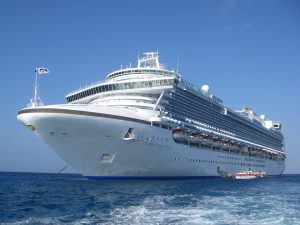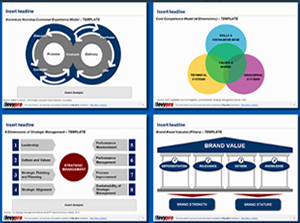Editor's Note: Take a look at our featured best practice, Trucking / Delivery Business Financial Model (Excel workbook). If you are trying to validate your trucking business (or a general delivery business), this 5-year financial model is just the right tool. These assumptions were specifically designed to meet the needs of a trucking business whose primary revenue stream is from making deliveries. Here is a [read more]
The International Shipping Industry’s Requirements for More Durable Alternative Windshield Materials
Also, if you are interested in becoming an expert on Supply Chain Management (SCM), take a look at Flevy's Supply Chain Management (SCM) Frameworks offering here. This is a curated collection of best practice frameworks based on the thought leadership of leading consulting firms, academics, and recognized subject matter experts. By learning and applying these concepts, you can you stay ahead of the curve. Full details here.
* * * *

The materials used in producing marine windows are different from those used for land-based vehicles. This is because materials for marine vessels must be designed specifically to adapt to the marine environment. Ships sailing the international sea routes that transport cargo worldwide, must ensure the safety of the ship, the cargo it carries, and its crew. The ship should have sturdy windshields that can reduce wind resistance and the strength against wave impact pressure.
Relying on trusted materials and platforms also ensures that international shipping lines can reach their destinations safely.
Polycarbonate Sheets for Windshields of Marine Vessels
It is difficult to find suitable materials that will offer excellent optical abilities and durability for marine vessels because of the extreme requirements and regulations of the shipping industry. As such, reinforced glass or acrylic used to be the material of choice for the windshield and windows of ships.
The availability of polycarbonate sheets, including multiwall polycarbonate, changed the equation. Polycarbonate sheets for the marine industry are now available, and they provide glass-like properties, which fit the visual clarity requirements of the international shipping industry. The feature provides high-quality optical vision, which is perfect for marine applications such as ship windows and windshields.
Need for Visual Clarity
Laminated glass used to be the obvious choice for windshields and windows of ships and other marine vessels because it provides excellent visual clarity. The crew members need a clear view of the sea for their safety. But today, the market preference has shifted to polycarbonates and acrylic. Polycarbonates are an obvious choice because the sheets are heavy-duty but weigh less and are highly suitable for heavy use and harsh environments.
In addition, polycarbonates for marine vessel windshields and windows are crystal clear. With a variety of coating options to help reduce the harmful effects of the sun’s UV rays, resist scratching, and prevent yellowing, the shipping industry has an alternative, more efficient, and cost-effective windshield material that can withstand the elements. The sturdy material has the flexibility to follow the curvature of boats and ships’ windshields without diminishing its protective features.
Things to Consider
The international shipping industry has specific requirements; thus, it is vital to carefully consider the materials to replace ships and boats’ windows and windshields. First, get the proper polycarbonate sheets explicitly made for marine vessels. The sheets should have an advanced surface coating to protect against harsher environments, especially from the sun’s UV rays coming from the sky and those reflected by the water. In addition, they should be more durable with extraordinary strength to resist impact, and abrasion resistance, from cleaning solutions, rainwater, seawater, salt, and other materials.
Conclusion
The international shipping industry needs materials that will perform excellently in rugged use, such as polycarbonate sheets. These durable materials are an excellent choice, and they are more cost-effective than other glazing solutions because they last for a long time. However, even if the product has unique features, including impact and scratch resistance, it needs proper and regular maintenance.

Want to Achieve Excellence in Supply Chain Management (SCM)?
Gain the knowledge and develop the expertise to become an expert in Supply Chain Management (SCM). Our frameworks are based on the thought leadership of leading consulting firms, academics, and recognized subject matter experts. Click here for full details.
Supply Chain Management (SCM) is the design, planning, execution, control, and monitoring of Supply Chain activities. It also captures the management of the flow of goods and services.
In February of 2020, COVID-19 disrupted—and in many cases halted—global Supply Chains, revealing just how fragile they have become. By April, many countries experienced declines of over 40% in domestic and international trade.
COVID-19 has likewise changed how Supply Chain Executives approach and think about SCM. In the pre-COVID-19 era of globalization, the objective was to be Lean and Cost-effective. In the post-COVID-19 world, companies must now focus on making their Supply Chains Resilient, Agile, and Smart. Additional trends include Digitization, Sustainability, and Manufacturing Reshoring.
Learn about our Supply Chain Management (SCM) Best Practice Frameworks here.
Readers of This Article Are Interested in These Resources

|
|
Excel workbook
|
|
Excel workbook
| |||
About Shane Avron
Shane Avron is a freelance writer, specializing in business, general management, enterprise software, and digital technologies. In addition to Flevy, Shane's articles have appeared in Huffington Post, Forbes Magazine, among other business journals.
Top 10 Recommended Documents on Logistics
» View more resources Logistics here.
» View the Top 100 Best Practices on Flevy.













